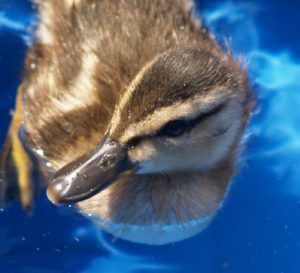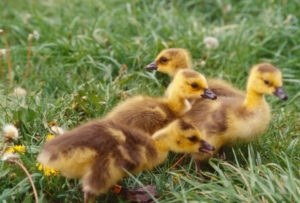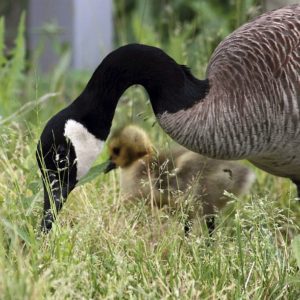Ducklings and goslings are what we call “precocial” babies. That means that very soon after they hatch, they are able to walk around, swim, and eat on their own. They still need their parents to protect them from predators, teach them about the world, and keep them warm.
Baby water birds are covered in fluffy feathers called “down”. The down might be yellow, brown, greenish, black, or white. They all have webbed feet to help them swim.
If you don’t think the baby you’ve found is a duckling or gosling, go back to our species selection page.
If the duckling you’ve found has a bright orange beak and feet, it is probably not a wild duckling. Check out our page on helping domestic animals.
Is the duckling or gosling injured?
A fledgling baby duck or goose with any of the following signs is injured and needs medical attention:
- There are obvious wounds or blood on its body
- It has had contact with a cat – even with no obvious injuries, this is a medical emergency for baby birds
- The bird is lying on its side and cannot right itself
- It cannot stand, walk, or run
- It is covered in bugs or insects
- The bird feels cold to the touch when you pick it up
- It is fluffy, looks “sleepy”, and doesn’t perk up or try to get away when you approach it.
To keep the baby bird(s) safe while you figure out how to help them, put them in a cardboard box big enough for them to move around with a soft towel or t-shirt. Even on a warm day babies can get cold, so give them a heat source:
• a clean sock filled with dry, uncooked rice, and microwaved for one minute
• a plastic bottle from the recycling bin filled with hot tap water and wrapped in a face cloth or tea towel
• an electric heating pad set to “LOW” and placed under half the box
Do not give them any food or water – right now keeping them warm in a dark and quiet place is more important. Contact a wildlife rehabilitator right away.




